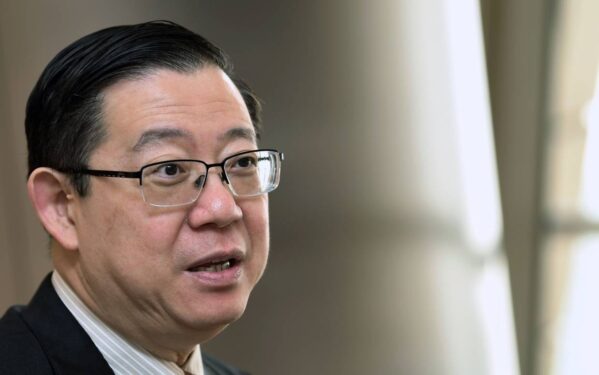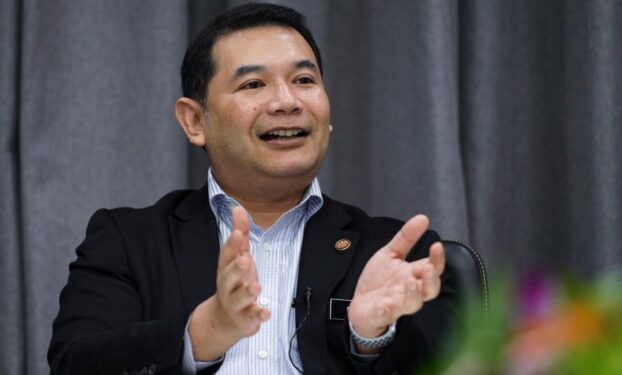RECENTLY, columnist Mariam Mokhtar, who brands herself as a “fierce critic of socio-political problems of Malaysia,” wrote about Malaysians who left the country and found their niche elsewhere.
Citing the names of a few Malaysians such as Penang lass Celine Chung, Alor Setar’s Jocelyn Yow and Sam Lim of Muar, she hit out at the cybertroopers for calling them “pendatang”.
And there is also the story of the little skating princess, Sree Abiraame, despite being congratulated by the former Prime Minister and Deputy Prime Minister, we are told, “financial help from the authorities is not forthcoming” to help the young Sree to achieve her dream.
Not forgetting ex-journalist Penang-born K Gurunathan was re-elected as a mayor in New Zealand, while two other young Malaysians, Siva Nagappan Visvesvaran, 20, and Wen Shin Chia, 26, will be receiving the Queen’s Young Leaders Award.
I hope more young Malaysians will strive for excellence.
If Malaysia wants to be a progressive nation in this century, all Malaysians who work hard should be given the opportunity to shine, regardless of their race, religion or political alignment.
These examples are just the tip of the iceberg. The bigger chunk of the iceberg is, in fact, right here in our backyard.
Speaking to my sources yesterday, I learnt that that five senior school assistants had gone through the National Professional Qualification for Educational Leaders (NPQEL) and several stages of interviews every year for between three and six years, but only one was finally selected to be the headmistress of a school probably after some insistence by the school.
As these senior assistants are all non-Bumiputra, it could have been better if the panels of interviewers represented the multiracial society that Malaysia boasts of, instead of a homogenous composition. I always feel that our East Malaysian brothers and sisters have been left out too.
Cases in our own backyard
All four others, selected because of their dedication to teaching, failed to be appointed as school principals. These have retired, except one.
I was told that the last one of these candidates also recently failed to be given a chance to take up the position of the principal of a school that put forward her name.
The school had apparently met up with the Education Ministry director-general Habibah Abdul Rahim.
However, my other sources revealed that the name of this candidate had, in fact, been proposed since April this year. The school board’s management could not be contacted for comments.
The candidate was rejected on the basis that she had only two years left before she is due to retire. In retrospect, I feel that Habibah could have at least been properly advised that this candidate had waited several years for an appointment.
Speaking to my sources, I learnt that the hopeful candidate had put together her plan to help turn the school into a school of excellence. She has proven track record based on reviews by the local district education office. Her talent could have been utilised to the fullest in many ways.
For that reason, it is obvious why she was the number one choice picked by the school.
My other sources, who had met Habibah, gave me the feedback that she is “clever” and “progressive.” Taking this feedback into consideration, it appears to me that she could have been ill-advised or is simply stuck with the policy that new school heads could be appointed only if they had more than three remaining years of service.
My sources sadly pointed out that for candidates to be appointed as principals, the goalpost keeps shifting between three and even six remaining years of active serve.
My question is: Don’t we have ministers in the past who continued serving beyond their retirement age? It is also a common practice for senior civil servants to be given an extension.
If truth has to be told bluntly, judging from my own experience in the private sector, even within the Education Ministry, systemic suppression of the good talents can exist – and it is very real for people in it!
There is frustration, as appointment of senior positions, even in civil service departments, whether during Barisan Nasional or Pakatan Harapan era, is not always done based on merits alone, but possibly race, religion, political affiliations or even alignment with the senior staff. This problem has been there since I was a child.
Systemic since the 1980s
This brings to mind what we heard from some of our primary school teachers at a dinner we hosted for them a few years ago. I was shocked to hear that a Primary Two teacher of mine later became the headmaster of a school in the rural area.
My friend and I were class monitors, and at the whims and fancies of this teacher, we were asked to perform a “push one another” match in front of the class. During the fasting month, we were asked to stand guard while this teacher hid himself behind the class for his lunch.
After so many years, I still remember this short bespectacled man, with a scowling face and rounded belly, who would call another classmate of ours by a derogatory nickname just because he had fairer skin than most of us.
For no reason, he would slap him on the face several times.
We were all innocent kids, but I did write a short note to the senior assistant, one nice lady by the name of Asiah Abu Samah, fondly known to us kids as Miss Syed.
Meanwhile, I regret that the good teachers who sat with us on the same table, were never given an opportunity to be promoted. Instead, this “lousy” and “hopeless” teacher (at least in my mind since childhood days), was made a headmaster.
The only logical conclusion we could come out with was the position he was holding in a political party in his later years.
Going into my secondary school, we also had a senior assistant, whom we loved and called cikgu Khadijah. For whatever reason when the new school building was completed, I was disappointed she did not become our Headmistress.
Instead, a new school head was appointed. He was a very quiet man, and we hardly saw his shadow, not to mention that till today, I have no inclination what his name was.
Stephen Ng is an ordinary Malaysian who brings the voices of the people to the forefront. He has served as a voice of conscience to politicians and top civil servants in this country since 2008.
The views expressed are solely of the author and do not necessarily reflect those of Focus Malaysia.










